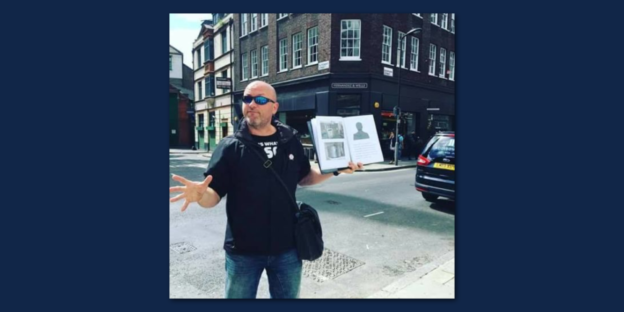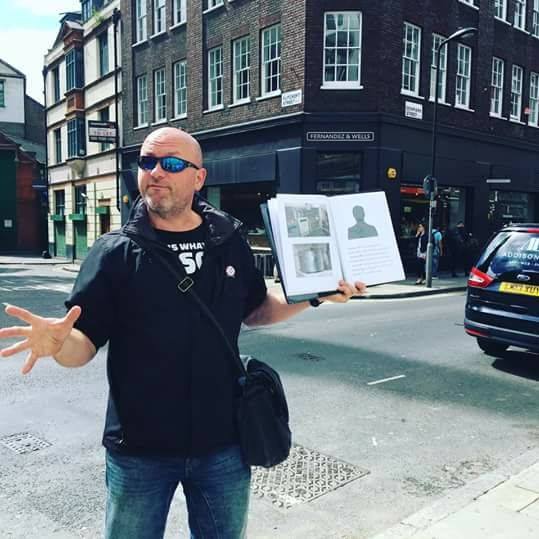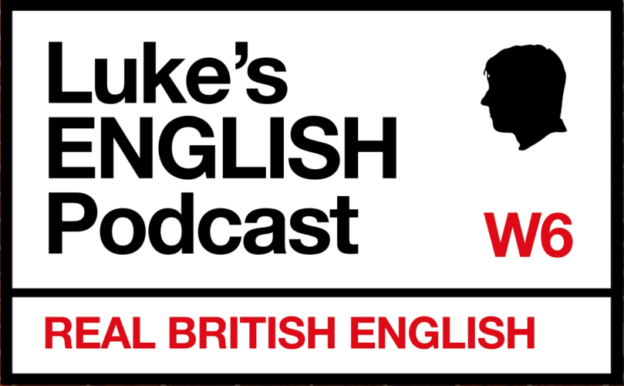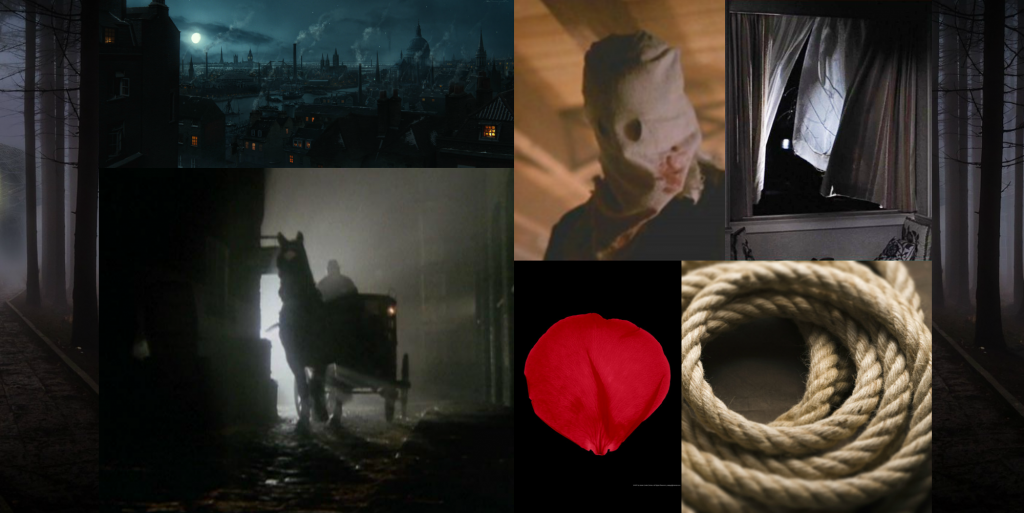Talking about the creepy subject of eating insects, which might be the solution to many of the problems that humans face as a species. This episode includes discussion of eating habits, environmental issues and some insect-related idioms and expressions. Transcripts and vocabulary lists available. Bon appetit!
![]() [DOWNLOAD]
[DOWNLOAD]
Transcript
Hello Lepsters! Here’s a new episode of this podcast which is dedicated to providing you with listening materials which are engaging, entertaining, educational and rich with language.
This episode is all about the creepy, yet potentially vital subject of eating insects.
It’s based on a couple of news stories, and also will contain some nice, chewy and nutritious bits of vocabulary and common expressions with words relating to insects and creepy crawlies, the environment, food and more.
 Britain’s first insect restaurant opens
Britain’s first insect restaurant opens
And you thought English food was bad enough already – now this.
Grub Kitchen – the UK’s first insect restaurant has opened in Haverfordwest in Wales.
Dishes include: bug burgers, mealworms, grasshoppers and cheesy locust croquettes.
Some vocab “straight off the bat”
- Grub = two meanings: 1. food (informal) 2. a larva of an insect (the kind of young version of an insect or beetle that looks like a maggot or worm) – hence the joke “Grub Kitchen”
- Bugs = any insects
- Mealworms / worms = things that live in the ground and that you use when fishing, they’re long and skinny and they burrow in the ground
- Grasshoppers = insects that live in the grass and jump quite far when you try to catch them. They’re green and have their ears on their knees.
- Locusts = like big grasshoppers that can fly and they’re in the bible as a plague. They swarm all over crops and eat everything.
- Croquettes are normally little potato patties, fried.
So an insect restaurant has opened in Wales, UK.
Bug burgers, anyone? Why we’re opening the UK’s first insect restaurant
http://theconversation.com/bug-burgers-anyone-why-were-opening-the-uks-first-insect-restaurant-49078
Read the first 3 paragraphs, and the last paragraph.
Some vocab from the article
- it has huge potential for feeding growing numbers of people (and the livestock they eat)
- on the street people are daring to try novel and exotic foods
- We want to champion insects as a sustainable source of protein in modern diets
- a research and education centre and 100-acre working farm
- Andy is an award-winning chef, who has become more and more disillusioned with the unsustainability of conventional restaurants.
- you don’t think that you want to veer into the world of entomophagy
This brings new meaning to the expression “Waiter, there’s a fly in my burger”.
“Waiter, there’s a fly in my …” is a typical joke in the UK. It’s like a cliched restaurant complaint and usually has a funny response from the waiter. “Waiter, there’s a fly in my soup”.
Waiter, what’s this fly doing in my soup?
Backstroke, sir.
My brother once found a fly in his cake in a restaurant in our home town. He complained and the waiter said “that’ll be extra sir”.
More http://www.indianchild.com/waiter_jokes.htm
Imagine if you didn’t realise it was an insect restaurant.
“Waiter, excuse me, there appears to be an insect in my salad.”
“Yes, that’s right, it’s the grasshopper salad. Would you like some salt and pepper, or should I say, wasp eyes and ant heads?”
Thoughts & Questions
What do you think?
- Would you eat there?
- Have you ever eaten an insect?
- Could you eat insects for dinner every day? What if they didn’t look like insects?
- Are you squeamish?
How to cook a locust
What’s his recipe? (answer below)
Recipe
Pan fry the locusts. Enhance the flavour with honey, a little bit of chilli, fry it in a little bit of butter.
Flavour of locusts: almost meaty, like a prawn. Effectively, they’re are basically a land prawn.
Pull the legs off. They tend to get stuck in the throat sort of.
Zingy, earthy…
#burgers and #bugs at the UK’s first #edibleinsect #restaurant: @grub_kitchen in #wales https://t.co/nLsyA4Cfks pic.twitter.com/fKAxve8Vun
— Charlotte Payne (@libertyruth) October 22, 2015
First evening service & @grub_kitchen is buzzing! @TYFAdventure @TYFgroup #yearofadventure pic.twitter.com/GrEX2ch50E
— Dr Beynon’s Bug Farm (@thebugfarmUK) October 30, 2015
Eating insects may be the answer in the future. Why?
Video – The Economist “Why Eating Insects Makes Sense”
Listen to this video from The Economist and try to identify some reasons why insects might be the answer to our problems. We’ll go through the language afterwards.
Economist Video + Transcipt
https://www.youtube.com/watch?v=euTBQOrpOmM
Transcript + Some Vocabulary Items (explained below)
The world’s population is projected to reach 11 billion by the end of the century. Feeding that many people will be a challenge, and it is further complicated by the impact of climate change on agriculture. That is why some people advocate an unusual way to boost the food supply and feed people sustainably: by eating less meat, and more insects.
About 2 billion people already eat bugs. Mexicans enjoy chili-toasted grasshoppers. Thais tuck into cricket stir-fries and Ghanians snack on termites. Insects are slowly creeping onto Western menus as novelty items, but most people remain squeamish. Yet there are three reasons why eating insects makes sense.
First, they are healthier than meat. There are nearly 2,000 kinds of edible insects, many of them packed with protein, calcium, fibre, iron and zinc. A small serving of grasshoppers can contain about the same amount of protein as a similar sized serving of beef, but has far less fat and far fewer calories.
Second, raising insects is cheap, or free. Little technology or investment is needed to produce them. Harvesting insects could provide livelihoods to some of the world’s poorest people. (what a great job!)
Finally, insects are a far more sustainable source of food than livestock. Livestock production accounts for nearly a fifth of all greenhouse-gas emissions – that’s more than transport. By contrast, insects produce relatively few greenhouse gases, and raising them requires much less land and water. And they’ll eat almost anything.
Despite all this, most Westerners find insects hard to swallow. One solution is to use protein extracted from bugs in other products, such as ready meals and pasta sauces. Not having to look at the bugs, and emphasising the environmental benefits, might make the idea of eating insects a bit more palatable.
For more video content from The Economist visit our website: http://econ.st/1ytKwbp
Why Eating Insects Makes Sense – Summary
Here are the reasons, based on a YouTube video from The Economist (video and transcript on my website, above). This bit has been paraphrased by me from the video.
- World population is expected to be 11 billion by the end of the century. It’s going to be hard to feed everyone. I don’t know if you’ve ever had guests. 11 guests is a lot of people to feed, but 11 billion, that takes the biscuit – and the biscuit is made out of bees.
- Climate change is going to make it hard to grow all the food and keep animals, and there will need to be more animals too. Unless we start to eat each other, or become zombies, or become zombies and eat each other we will have to find another solution.
- We’re running out of space and farmed animals (with all their gas and farting and all that) are making the situation much much worse. Apparently they actually produce more greenhouse gasses than transport does. That’s a lot of methane. Is it methane? Farts, basically. They eat grass and fart, a lot, all day.
- So we’re running out of space and if we keep farming and eating these fart machines, sorry I mean animals like we do now we won’t be able to feed everyone and we’ll completely ruin the climate. Animals take up quite a lot of space and also we use lots of space to grow their food.
- Apparently, insects are a solution. Just when you thought insects were a problem that you just want to get rid of, because every single run-in you have with an insect is a bad one. They’re either trying to bite you, sting you, steal your food or shit on your wall. They’re in your car, in your ear at night and sometimes in the bathroom, in the bath. We generally don’t get along with insects very well. Ever had a close up look at an insect? They’re quite frightening in a way. Imagine a massive one. Also, there’s something naturally in us which is disgusted by them – little crawly, creepy things with legs and wings. It makes you feel itchy, doesn’t it. Makes you want to scratch, just at the name of them. Insects, ooh scratch scratch scratch itchy itchy itch. So, we’ve always thought of them as a problem, but now they might just be the solution to our problems.
- About 2 million people already eat insects. Mexicans eat chilli toasted grasshoppers. Thais eat stir fries with crickets. Ghanians eat termites. In other places people eat grubs, scorpions and spiders. Yum!? So, it’s already happening. If it’s ok for them – why not everyone else?
- What are the arguments against eating insects? They’re bad for you? They’re no basis for a healthy diet? It eventually turns you into an insect like Jeff Goldblum in The Fly?
- Well, eating insects is not bad for you. In fact it’s healthier than red meat. There are over 2,000 edible insects and they are all flying towards your face, sorry, I mean there are over 2,000 edible insects and they contain calcium, protein, zinc, fibre, iron. A serving of grasshopper and a similar serving of beef have about the same amount of protein, but the grasshoppers contain fewer calories. I bet it doesn’t taste as good as a good burger though, does it?
- It’s really cheap to raise insects. You hardly need any technology or anything. I guess you don’t need to move them around much, you keep them in a contained space, provide food and bob’s your uncle. Loads of insects. It might be like going to work in a horror film, but you certainly don’t need to worry about the mountains of shit that cows produce on a daily basis, or all the complications relating to how you breed them. Getting big animals to have sex with each other already feels weird, like, why are we here watching them and in fact making them have sex and then watching, it’s also quite difficult logistically. On the other hand, or should I say leg, insects are really low-maintenance and quite randy. You don’t really have to do anything to make them have sex with each other, they’re at it all the time. They shag like rabbits, if rabbits were insects or somehow made of insects. They shag each other a lot basically, and they have really no standards at all. They’ll do any other insect.
- Joking aside though, this could really help producers who don’t have much money for equipment or facilities, and generally can save space, time and resources.
- Insects are generally better at growing and surviving than mammals, like cows and sheep – which you have to look after pretty carefully. Mammals are prone to disease and are far more sensitive than insects. They don’t take criticism very well, for example. If you say to a cow, “you’re really bad at being a cow. The way you eat grass is pathetic” they can be very affected. They’re rubbish, basically, whereas insects are hardcore. Someone once said that if there was a nuclear holocaust, the only survivors would be bugs, and maybe Keith Richards.
- Insects are also way better for the environment. Livestock (that’s cows, sheep, pigs etc) account for over 1/5 of greenhouse gas emissions in the world. It’s more than transport. More than cars! Apparently, cows fart a lot. That’s a massive amount of fart gas clogging up our atmosphere! But insects don’t produce many emissions. They are very discrete, and you need less food and water to raise them. Insects will eat pretty much anything. They’re so easy to farm. Even if, like I said before, it’s a bit like working with Aliens from the movie Aliens, but much smaller, every day, and eating them.
- But the downside is – nobody in the Western world, or developed world (or whatever you want to call it) wants to eat them. We’re just not predisposed to finding them appealing. We are naturally turned off by them. We think they’re flipping disgusting, basically. Errrr, insects – that’s disgusting!
- But maybe there are other ways of using insects. You don’t necessarily need to eat a fly sandwich. If we took the protein from insects and just added it to our food in other ways – like adding it to pasta sauce or veggie burgers, that would make them easier to swallow (literally and metaphorically).
- If we want to survive in the future – we need to tolerate certain changes. Eating insects, might be something we’ll just have to accept. It might just be “eat some insects or breathe nothing but fart gas”. Just deal with it! Time to man up and chow down on some bug-meat or it’s bye bye planet earth!
I’d love it if the world embraced this idea and didn’t just go – “No, I don’t want it! Screw the planet! I’m not eating a worm!” It would be amazing if the whole human race just went with it and said “yep, this is fine. Bring on the insects, let’s get crazy! It’s dinner time!”
Because the thing is, you probably wouldn’t be eating insects the way they normally look. We’d harvest the insects and then basically turn them into a kind of protein powder which could be turned into all sorts of other things. Generic matter which could be made into a burger, mince meat, chicken nuggets or anything.
I can’t wait for McDonald’s to launch its first bug burger.
Vocabulary Items from the Economist video
- is projected to reach 11 billion by the end of the century (when you make a prediction about numbers we talk about doing projections and things being projected. For example you might talk about projected sales turnover for year 1, year 2, year 3 when pitching a new company to investors.)
- some people advocate an unusual way to boost the food supply (to advocate = to argue something, defend something, stand up for something, support something. E.g. to advocate for the legalisation of cannabis.)
- feed people sustainably: by eating less meat, and more insects. (these days, with the environment being such an important factor affecting everything, we talk more about sustainability, things being sustainable and doing things sustainably and to do something sustainably means that you do it so that it can continue going in the future. For example, sustainable agriculture means farming in a way that protects the land that you’re farming on, so that you don’t use up all the resources and ensure that the land continues to produce food in the future. Similarly, sustainable development is a key type of civil engineering in today’s world. It’s all about making sure that the environment, the economy and society are maintained at certain levels into the future. Insects could be a way to feed people sustainably – give people food in a way that means the environment isn’t damaged.)
- Thais tuck into cricket stir-fries (to eat)
- and Ghanians snack on termites (to eat)
- Insects are slowly creeping onto Western menus as novelty items (creeping onto = moving slowly onto. Also, insects creep – it’s the way they move. Creepy crawlies. So insects can creep onto menus, or other things can creep onto menus, like kale for example. Novelty items are usually quite interesting, original and popular because they are new. It’s also a word for a little toy, like an interesting and enjoyable, original little thing , and something that’s new. Digital watches used to be a novelty, the game boy, fidget spinners)
- most people remain squeamish (sensitive to disgusting things – you can’t handle the sight of an insect, or blood)
- There are nearly 2,000 kinds of edible insects (possible to eat. Edible and drinkable)
- many of them are packed with protein, calcium, fibre, iron and zinc (full of)
- A small serving of grasshoppers (food is given to you in servings or helpings. If it’s a serving it means someone else served it to you. If it’s a helping it means you helped yourself to it.
- raising insects is cheap, or free (to raise means to bring up, or help something grow)
- Harvesting insects could provide livelihoods to some of the world’s poorest people. (harvesting = growing or cultivating things like crops but also insects and then collecting them all for money or food – happens at the end of summer)
- insects are a far more sustainable source of food than livestock (there’s that word sustainable again) (livestock = live animals kept in farms in fairly large numbers.)
- most Westerners find insects hard to swallow
Listen to the video again and notice the vocabulary.
You could check the transcript (above) and repeat what you hear.
https://www.youtube.com/watch?v=euTBQOrpOmM











